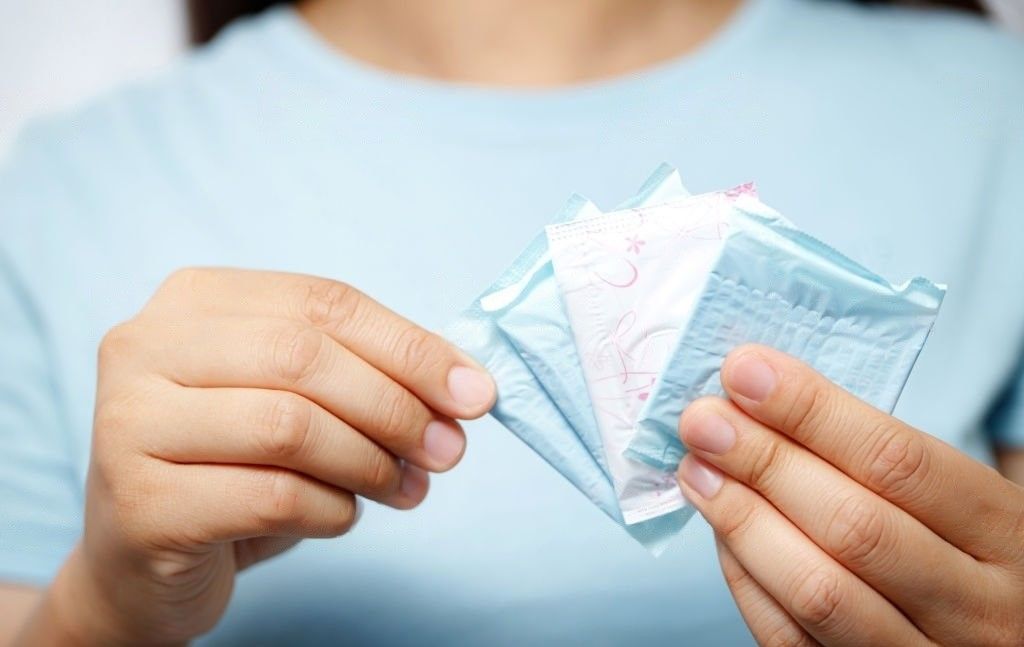Decoding Early Periods: What Causes Them
Early periods can be concerning for women, but it is critical to understand the probable causes and when to seek medical assistance.

Menstruation is a natural and cyclical process that occurs in women of reproductive age. The timing and regularity of periods may vary among individuals. However, experiencing early periods can be concerning for many women. In this blog post, we will explore the potential causes of early periods, backed by scientific research. By understanding these causes and knowing when to seek medical attention, women can navigate their reproductive health with greater confidence. Let's unravel the mysteries surrounding early periods and shed light on this important topic.
Why does menstrual period arrive early?
1.Hormonal Imbalances: Hormonal imbalances play a significant role in regulating the menstrual cycle. Fluctuations in hormones such as estrogen and progesterone can lead to irregularities, including early periods.
Hormonal imbalances can occur due to various factors, including stress, certain medications, polycystic ovary syndrome (PCOS), thyroid disorders, or perimenopause. These imbalances can disrupt the normal hormonal pattern, potentially causing the uterine lining to shed earlier than expected.
2. Stress and Emotional Factors: Stress, both physical and emotional, can affect the delicate balance of hormones in the body. This disruption can lead to alterations in the menstrual cycle, including early periods.
Reasoning: Stress triggers the release of stress hormones, such as cortisol, which can influence the normal functioning of the reproductive system. Elevated cortisol levels can disrupt the regular hormonal pattern, potentially causing an early shedding of the uterine lining.
3. Polycystic Ovary Syndrome (PCOS): PCOS is a common hormonal disorder that affects women of reproductive age. It is characterized by hormonal imbalances, cyst formation in the ovaries, and irregular menstrual cycles.
In PCOS, hormonal imbalances, particularly elevated androgen levels, can disrupt the normal menstrual pattern. These imbalances can result in irregular or early periods.
4. Uterine Abnormalities: Structural abnormalities in the uterus, such as fibroids or polyps, can impact the menstrual cycle and lead to early periods.
Uterine abnormalities can disrupt the normal shedding of the uterine lining. They can cause irregular bleeding, including early periods, due to the presence of abnormal tissue or growths.
5. Medications and Medical Conditions: Certain medications and underlying medical conditions can impact the menstrual cycle and contribute to early periods.
Medications such as hormonal contraceptives, anticoagulants, or certain antidepressants can influence hormone levels and affect the timing of periods. Additionally, medical conditions like endometriosis or pelvic inflammatory disease (PID) can cause inflammation and disrupt the regular menstrual cycle.
SUMMARY
Experiencing early periods can be a source of concern for women, but it is important to understand the potential causes and when to seek medical attention. Hormonal imbalances, stress, polycystic ovary syndrome (PCOS), uterine abnormalities, medications, and underlying medical conditions can all contribute to early periods. By recognizing these factors, women can gain a better understanding of their reproductive health and make informed decisions about their well-being. It is essential to consult with a healthcare professional if early periods persist, are accompanied by other concerning symptoms, or significantly disrupt daily life.
Jayti Shah is a Clinical Nutritionist with a master's degree in Clinical Nutrition and Dietetics. She is a member of the Indian Dietetic Association (IDA). Over the last 9 years, she has helped 400 clients in their clinical and weight loss journeys. She works with SocialBoat as a nutrition consultant.
At SocialBoat, we offer custom diet plans and guided workouts to help you achieve your goals in a 360-degree approach. Our gamified experience ensures that you don’t find workouts boring and we reward you for being consistent with your efforts.

REFERENCES
- Santoro N, Eisenberg E, Trussell JC, et al. Factors associated with recovery of ovulatory menstrual cycles in women with polycystic ovary syndrome: a case series. J Clin Endocrinol Metab. 2011 Dec;96(12):E2015-8. doi: 10.1210/jc.2011-1284.
- Gibson-Helm M, Teede H, Dunaif A, et al. Delayed diagnosis and a lack of information associated with dissatisfaction in women with polycystic ovary syndrome. J Clin Endocrinol Metab. 2017 Mar 1;102(3):604-612. doi: 10.1210/jc.2016-2963.
- Chaudhuri A, Singh A. Understanding polycystic ovary syndrome in the adolescent girl. J Pediatr Adolesc Gynecol. 2018 Oct;31(5):423-428. doi: 10.1016/j.jpag.2018.05.010.
- Brundu B, Loucks TL, Adler LJ, et al. Reduced cortisol and control of cortisol secretion in women with abdominal obesity. Obes Res. 2005 Oct;13(10):1697-705. doi: 10.1038/oby.2005.207.
- Clifton VL. Review: Sex and the human placenta: mediating differential strategies of fetal growth and survival. Placenta. 2010 May;31 Suppl:S33-9. doi: 10.1016/j.placenta.2009.12.022.
- Speroff L, Fritz MA. Clinical Gynecologic Endocrinology and Infertility. 8th edition. Philadelphia, PA: Lippincott Williams & Wilkins; 2011.
- Shorakae S, Teede H, de Courten B, Lambert G, Boyle J. Features of polycystic ovary syndrome are associated with variation in luteinizing hormone concentrations independent of insulin resistance. Fertil Steril. 2011 Dec;96(6):1262-7. doi: 10.1016/j.fertnstert.2011.09.006.
